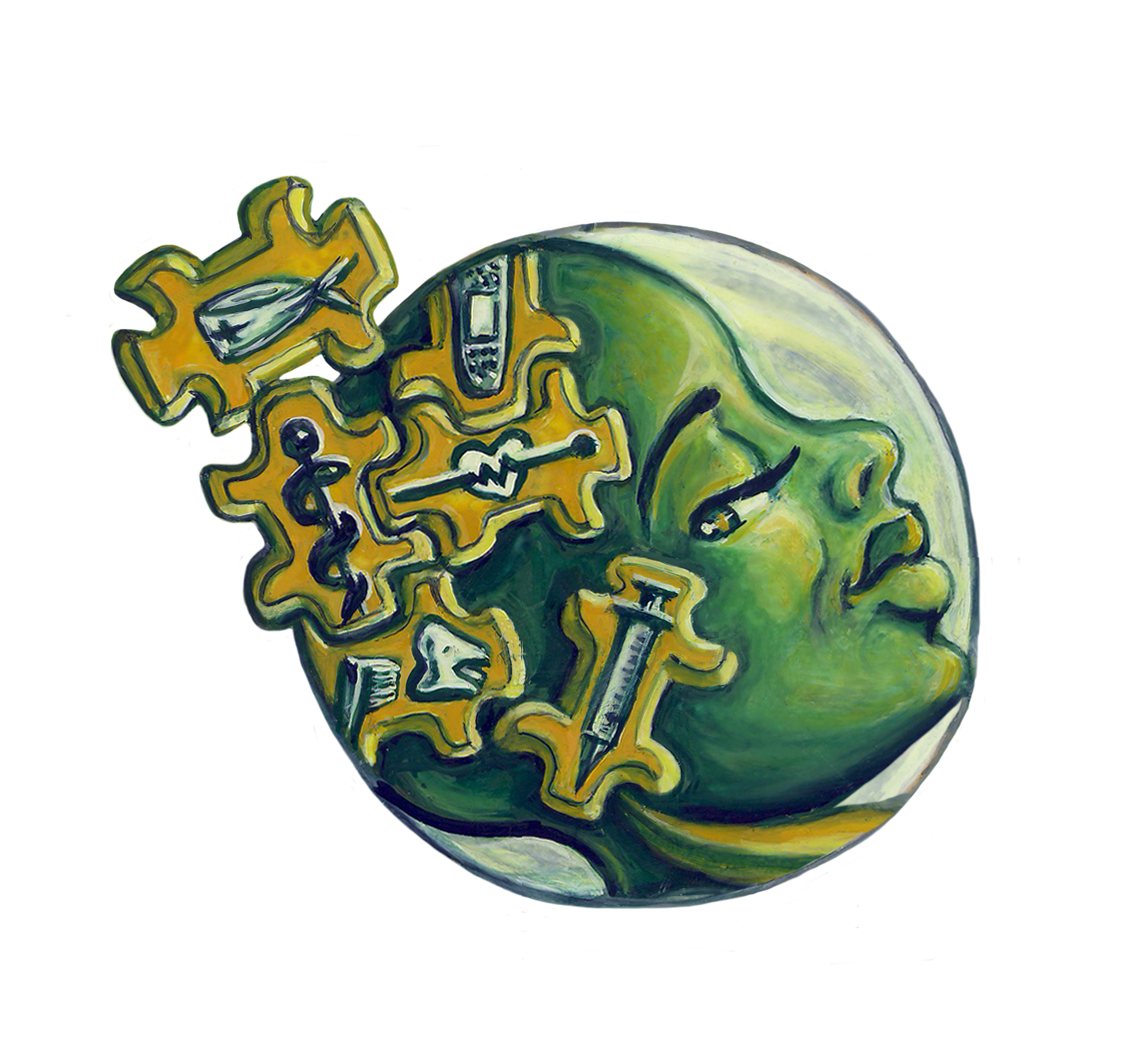
Events
 Health Humanities is a five-course diploma program that can be added to the academic plan of any University of Waterloo student or completed as an independent diploma without enrolling in any other program at UW. The diploma is very flexible – although students must take HHUM 101 (Foundations of Health Humanities) at some point, they can get started with any of the courses that are part of the program.
Health Humanities is a five-course diploma program that can be added to the academic plan of any University of Waterloo student or completed as an independent diploma without enrolling in any other program at UW. The diploma is very flexible – although students must take HHUM 101 (Foundations of Health Humanities) at some point, they can get started with any of the courses that are part of the program.
See below for further details about the plan requirements and suggested pathways through the program.
The diploma in Health Humanities is an interdisciplinary program, drawing on multiple humanities and social sciences disciplines to help students appreciate the human, subjective, qualitative side of health and whole person care. The courses included in the diploma train students in narrative competencies such as engaging authentically with others’ points of view and formulating and communicating one’s own thoughts, feelings, and values. Through dialogue, discussion, and written analysis, students explore the representation and lived experience of health, illness, the body, and the patient-caregiver relationship. Candidates for the diploma will learn the importance of a historical perspective, develop their abilities to think critically and reflectively and engage in ethical deliberation, acquire a range of interpretive skills (e.g. close readings of texts, artworks, discourses, etc.), and increase sensitivity to cultural difference and inequalities.
Core humanities disciplines contributing to the program include English, Philosophy and History. Courses are also offered by faculty from Religious Studies, Psychology, and Sexuality, Marriage, and Family Studies.
To obtain the diploma in Health Humanities, students must successfully complete five courses, including HHUM 101: Foundations of Health Humanities, and four others from the following list. At least one of the four elective courses must be at the 300 level. Students must achieve a minimum cumulative diploma average of 65%.
| First Year (100-level) | Second Year (200-level) | Third Year (300-level) |
| HHUM 101: Foundations of Health Humanities | HIST 209: Canadian Medical History | MEDVL 305: Medieval Death and Dying |
| ENGL 108X: Literature and Medicine | HHUM/SMF 218: Sexual Health and Well-Being in Comics | HHUM 306: Public Health in Medieval Society |
| HHUM 221: Monstrous Hunger | HHUM 307: Concepts of Health and Disease in Western Medical History | |
| HHUM 222 :Health, Illness, and Narrative | HHUM 311: Culture, Mental Health, and Wellness | |
| HHUM/SMF 241: Caregiving, Illness, and Relationships | HHUM 312: Cross-Cultural Care Traditions | |
| HHUM/ITALST 263: Representations of Contagion, Disease, and Illness in Italian Literature and Film | PHIL 319J: Ethics of End-of-Life Care | |
| RS 266: Death and Dying | PHIL 321J: Philosophy of Palliative Care | |
| HHUM 288: Health, Medicine, and Spirituality | HHUM 372: Women and Medicine in Literature | |
| HHUM 373: Early Modern Bodies | ||
| RS 387: Aging and the Spiritual Life | ||
| HHUM 391: Seminar in Health Humanities |
Students can choose from any of the courses included in the diploma. However, students who want a broad exposure to the disciplines contributing to the diploma may consider taking a course from each of the core Humanities areas (Literature, Philosophy, History) in addition to a course from a Social Science area or the Seminar in Health Humanities (HHUM 391).
Interdisciplinary
- HHUM 101: Foundations of Health Humanities
- HHUM 312: Cross-Cultural Care Traditions
- HHUM 391: Seminar in Health Humanities
Literature
- ENGL 108X: Literature and Medicine
- HHUM 221: Monstrous Hunger
- HHUM 222: Health, Illness, and Narrative
- HHUM 263/ITALST 263: Representations of Contagion, Disease, and Illness in Italian Literature and Film
- HHUM 372: Women and Medicine in Literature
- HHUM 373: Early Modern Bodies
Philosophy / Religious Studies
- RS 387: Aging and the Spiritual Life
- PHIL 321J: Philosophy of Palliative Care
- PHIL 319J: Ethics of End-of-Life Care
- HHUM 288: Health, Medicine, and Spirituality
- RS 266: Death and Dying
History
- HHUM 307: Concepts of Health and Disease in Western Medical History
- HHUM 306: Public Health in Medieval Society
- MEDVL 305: Medieval Death and Dying
- HIST 209: Canadian Medical History
Social Science
- HHUM 311: Culture, Mental Health, and Wellness
- HHUM 218/SMF 218: Sexual Health and Well-being in Comics
- HHUM 241/SMF 241: Caregiving, Illness, and Relationships
If you want further information about any of these courses, go to FIND YOUR COURSES and select HHUM under the Subject prompt.
For more information on academic plans please visit the University of Waterloo Undergraduate Calendar.